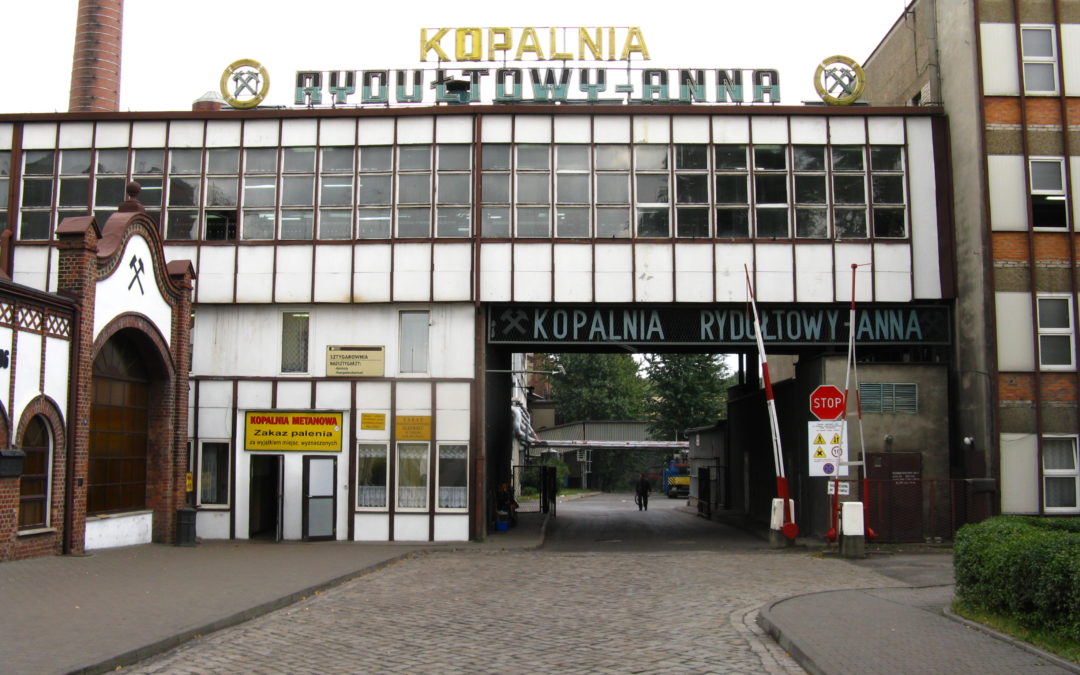Regional sanitary authorities in Silesia province, where there has been a mass outbreak of coronavirus cases in coal mines, have apologised for their handling of the crisis, admitting they have been overwhelmed.
On Monday Poland recorded its highest daily number of new cases, 599, since the start of the pandemic. The previous record was set on Saturday. On Monday, for the second day running, Poland registered the highest number of new cases in the EU – ahead of Germany (336), Italy (280) and France (211), reports Onet.
The majority of new cases have been recorded in the mining region of Silesia, including 326 on Monday. So far, 5,200 miners have been found to be infected with the virus. Up to 60,000 miners have been tested, and a further 17,500 tests are planned this week, according to an announcement by the health ministry on Tuesday, reports TVN 24.
Sanitary authorities apologised for being overwhelmed by the scale of the local outbreaks. “The situation in Upper Silesia [province] is hard,” said Grzegorz Hutnik, the chief sanitary inspector of the administrative province.
“Often samples are mislabelled or damaged during transport. These are human errors – he who does nothing, never errs,” said Hutnik.
Hutnik was responding to a report aired by Polsat News on Saturday, which showed the chaotic operations of sanitary points in Silesia, including cases of lost samples and contradictory test results.
“Up to 4 June, we had tested around 98,000 people, mainly around mining jobs,” said Hutnik, adding that the services were “unable to keep everyone up to date” due to “limited staff”.
He added that 10,949 people are currently being held under epidemiological supervision and “every day the number increases”, reports Polsat news.
In response to the outbreak, Jacek Sasin, the minister for state assets, announced that 12 mines operated by state-controlled companies were to be closed down down today, with operations suspended for three weeks.
“We propose a temporary shutdown of operations in all those mines where we are recording cases of the coronavirus today, and that the crews are tested in full,” said Sasin, reports Business Insider.
Wicepremier @SasinJacek: Wydobycie węgla zostanie wstrzymane w dziesięciu kopalniach Polskiej Grupy Górniczej i dwóch JSW. To przejście do kolejnego etapu walki z #koronawirus, by chronić górników. pic.twitter.com/HaZIZka8zc
— Ministerstwo Aktywów Państwowych (@MAPGOVPL) June 8, 2020
The furloughed miners will, however, continue to receive 100% pay during the three weeks. The government will compensate the mining companies for the expense. “We do not want miners to be economically punished for the outbreaks,” said Sasin.
Miners are the only professional group in Poland to receive their full salary while being furloughed. Workers in other sectors have received compensation of up to around 2,080 zloty per month, or 80% of the minimum wage.
The decision was criticised by Marek Tatała, vice president at the Civic Development Forum (FOR), a think tank, who told Business Insider: “The contribution of professions linked with coal mining to [Poland’s] GDP is unproportional to their political clout.”
“The [miners’] power and position in the Polish economy comes, first and foremost, from the historical fact of strong and well-organised worker unions,” said Tatała.
Others have pointed out that the government has not closed the mines with the largest outbreaks, but rather those that produce less profitable coal for heating. The two mines belonging to Jastrzębska Spółka Węgolowa (JSW), a state-owned mining company, which will shut down are Budryka and Knurów-Szczygłowice, which have both had small numbers of infections to date, reports Strefa Inwestora.
Meanwhile, the two mines with the largest number of coronavirus cases – Pniówek and Zofiówka – remain open. As of Monday, there had been 1,600 miners with the virus, or a third of the crew, in Pniówek. By then, Zofiówka had recorded 1,148 coronavirus cases among its 3,470 workers, reports Strefa Inwestora. Both these mines produce coking coal, which currently fetches higher market prices.
The government, however, has explained that a criterion for deciding which mines to close has been whether all of the crew members have been tested.
Poland’s ailing coal sector continues to struggle, as overall sales have also dropped due to the struggles of Poland’s manufacturing sector amid the pandemic. Coal sales from domestic mines fell to 4 million tonnes in April, down 0.5 million tonnes from March and 0.9 million tonnes year on year.
Meanwhile, production continues to surpass sales. Producers had 7.7 million tonnes of coal stockpiled at the end of April, up from 7.1 million in February.
At JSW, stockpiles have also grown this year. In the first quarter, the company produced 4.1 million tonnes of coking coal, but only sold 2.6 million tonnes.
The company also produced 0.9 million tonnes of heating coal (18% less than in the same period last year), but sold only 0.7 million tonnes (30% less than last year). As a result, the three-week halt in production may allow the company to sell off some of its stockpiles.
Following Sasin’s announcement of the closures on Monday morning, JSW shares initially tumbled on Warsaw’s Stock Exchange by over 11%. Some of the losses have since been regained.
Main image credits: Ludek/Wikimedia Commons

Maria Wilczek is deputy editor of Notes from Poland. She is a regular writer for The Times, The Economist and Al Jazeera English, and has also featured in Foreign Policy, Politico Europe, The Spectator and Gazeta Wyborcza.




















